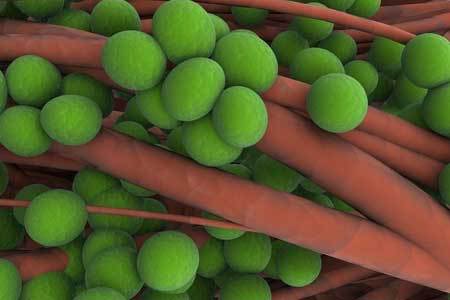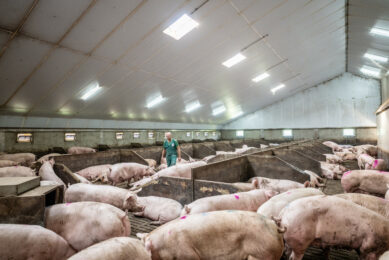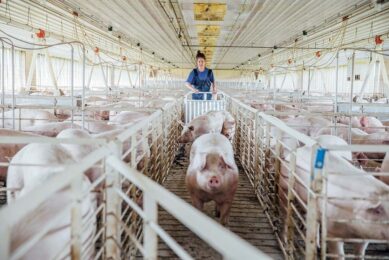RESEARCH: MRSA bacteria less common on organic pig farms

Recent farm research in the Netherlands shows that the Methicillin-Resistant Staphylococcus aureus bacteria are less prevalent on organic pig farms when compared to regular pig farms.
This was concluded by researchers from the Dutch Louis Bolk Institute, in cooperation with the Netherlands Central Veterinary Institute and the Agricultural Economics Research Institute, part of Wageningen University, the Netherlands. They took samples at pigs and their caretakers in the pig houses.
Main objective of the research was to map the presence of MRSA in organic pig farming and reduce potential risk.
The research was carried out at about 50% of the Netherlands’ organic pork producers. Samples from the pigs and the pig houses showed that MRSA was present in 17% of the cases. From samples taken from the pigs themselves, about 3% showed to be positive for MRSA.
Comparing is possible as similar research was carried out in 2007-2008. During that research, it was shown that 71% of the tested farms proved positive for MRSA. In total, in 38% of all samples taken from pigs showed to be positive for MRSA.
The use of antibiotics is being considered as an important risk factor for the development of antimicrobial resitant bacteria, like MRSA. The average usage of antibiotics on organic farms was more than 70% lower than in regular pig production.
The research was set up by Dr Lucy van de Vijver, Dr Cynthia Verwer, Nico Bondt and professor Dr Dik Mevius.
The report, Antibioticaresistentie in de biologische varkenshouderij (in Dutch) can be downloaded here.
Related websites:











